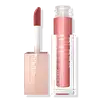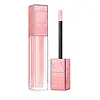What's inside
What's inside
 Key Ingredients
Key Ingredients

 Benefits
Benefits

 Concerns
Concerns

 Ingredients Side-by-side
Ingredients Side-by-side

C18-36 Acid Triglyceride
EmollientBis-Diglyceryl Polyacyladipate-2
EmollientPentaerythrityl Tetraisostearate
EmollientPolybutene
Tridecyl Trimellitate
EmollientDiisostearyl Malate
EmollientSilica Dimethyl Silylate
EmollientPhenoxyethanol
PreservativeEthylhexyl Palmitate
EmollientPentaerythrityl Tetra-Di-T-Butyl Hydroxyhydrocinnamate
AntioxidantCalcium Sodium Borosilicate
Ethylhexylglycerin
Skin ConditioningCalcium Aluminum Borosilicate
Tocopheryl Acetate
AntioxidantSodium Saccharin
MaskingSorbic Acid
PreservativeAlumina
AbrasiveSilica
AbrasivePolybutylene Terephthalate
Trihydroxystearin
Skin ConditioningCocos Nucifera Oil
MaskingAluminum Hydroxide
EmollientEthylene/Va Copolymer
Emulsion StabilisingAcrylates Copolymer
Tin Oxide
AbrasiveSodium Hyaluronate
HumectantSynthetic Fluorphlogopite
Tocopherol
AntioxidantMagnesium Silicate
AbsorbentGlucomannan
Skin ConditioningParfum
MaskingCI 77891
Cosmetic ColorantCI 77491
Cosmetic ColorantCI 77492
Cosmetic ColorantCI 77499
Cosmetic ColorantMica
Cosmetic ColorantCI 45410
Cosmetic ColorantCI 15850
Cosmetic ColorantCI 75470
Cosmetic ColorantCI 17200
Cosmetic ColorantCI 45380
Cosmetic ColorantCI 15985
Cosmetic ColorantCI 19140
Cosmetic ColorantCI 42090
Cosmetic ColorantFish Oil
Skin ConditioningC18-36 Acid Triglyceride, Bis-Diglyceryl Polyacyladipate-2, Pentaerythrityl Tetraisostearate, Polybutene, Tridecyl Trimellitate, Diisostearyl Malate, Silica Dimethyl Silylate, Phenoxyethanol, Ethylhexyl Palmitate, Pentaerythrityl Tetra-Di-T-Butyl Hydroxyhydrocinnamate, Calcium Sodium Borosilicate, Ethylhexylglycerin, Calcium Aluminum Borosilicate, Tocopheryl Acetate, Sodium Saccharin, Sorbic Acid, Alumina, Silica, Polybutylene Terephthalate, Trihydroxystearin, Cocos Nucifera Oil, Aluminum Hydroxide, Ethylene/Va Copolymer, Acrylates Copolymer, Tin Oxide, Sodium Hyaluronate, Synthetic Fluorphlogopite, Tocopherol, Magnesium Silicate, Glucomannan, Parfum, CI 77891, CI 77491, CI 77492, CI 77499, Mica, CI 45410, CI 15850, CI 75470, CI 17200, CI 45380, CI 15985, CI 19140, CI 42090, Fish Oil
Hydrogenated Polyisobutene
EmollientButyrospermum Parkii Butter
Skin ConditioningDiisostearyl Malate
EmollientEthylene/Propylene/Styrene Copolymer
Silica Dimethyl Silylate
EmollientTitanium Dioxide
Cosmetic ColorantMica
Cosmetic ColorantSynthetic Fluorphlogopite
Polyethylene
AbrasivePhenoxyethanol
PreservativeCI 15850
Cosmetic ColorantMicrocrystalline Wax
Emulsion StabilisingButylene/Ethylene/Styrene Copolymer
Iron Oxides
CI 75470
Cosmetic ColorantBHT
AntioxidantEthylhexyl Palmitate
EmollientTocopherol
AntioxidantRubus Idaeus Seed Oil
EmollientSimmondsia Chinensis Seed Oil
EmollientPunica Granatum Flower Extract
Skin ConditioningTrihydroxystearin
Skin ConditioningSodium Hyaluronate
HumectantHelianthus Annuus Seed Oil
EmollientRosmarinus Officinalis Leaf Extract
AntimicrobialGlucomannan
Skin ConditioningHydrogenated Polyisobutene, Butyrospermum Parkii Butter, Diisostearyl Malate, Ethylene/Propylene/Styrene Copolymer, Silica Dimethyl Silylate, Titanium Dioxide, Mica, Synthetic Fluorphlogopite, Polyethylene, Phenoxyethanol, CI 15850, Microcrystalline Wax, Butylene/Ethylene/Styrene Copolymer, Iron Oxides, CI 75470, BHT, Ethylhexyl Palmitate, Tocopherol, Rubus Idaeus Seed Oil, Simmondsia Chinensis Seed Oil, Punica Granatum Flower Extract, Trihydroxystearin, Sodium Hyaluronate, Helianthus Annuus Seed Oil, Rosmarinus Officinalis Leaf Extract, Glucomannan
 Reviews
Reviews

Ingredients Explained
These ingredients are found in both products.
Ingredients higher up in an ingredient list are typically present in a larger amount.
Ci 15850 is the pigment color red. It is an azo dye and created synthetically.
Azo dyes need to be thoroughly purified before use. This allows them to be more stable and longer-lasting.
This ingredient is common in foundations, lipsticks, and blushes. This color is described as brown/orangey red.
It has many secondary names such as Red 6 and Red 7. According to a manufacturer, Red 6 usually contains aluminum.
Learn more about CI 15850Ci 75470 is a bright-red pigment. It is AKA carmine.
Carmine is derived from insects such as the cochineal beetle. This ingredient has been used as a natural dye for over 2000 years.
Diisostearyl Malate is an emollient and most often used in lip products. It comes from isostearyl alcohol, a fatty acid, and malic acid, an AHA.
As an emollient, Diisostearyl Malate helps create a thin film on your skin to trap moisture in. This helps keep your skin soft and smooth.
Ethylhexyl Palmitate, also known as octyl palmitate, is created from 2-ethylhexyl alcohol and palmitic acid. It is a fatty acid ester.
The fatty acid content of Ethylhexyl Palmitate makes it an emollient. Emollients help soften and hydrate your skin by trapping moisture within.
Ethylhexyl Palmitate is also used to help improve the texture of cosmetics. It helps other ingredient dissolve in products and help disperse ingredients more evenly.
You'll likely find this ingredient in sunscreen, as it is often used to mix UV-blocking ingredients such as avobenzone and ethylhexyl triazone.
It can also help stabilize the fragrances in a product as a fragrance fixative.
Ethylhexyl Palmitate can be used to substitute mineral oil.
Due to its high fatty acid content, it may not be fungal-acne safe.
Learn more about Ethylhexyl PalmitateGlucomannan is a fiber created from the Konjac plant. It is an emulsifier and thickener.
The high polysaccharide content makes it great at adjusting the texture of products. (Kind of like starch).
Polysaccharides also help our skin stay hydrated.
This ingredient is water-soluble.
Learn more about GlucomannanMica is a naturally occurring mineral used to add shimmer and color in cosmetics. It can also help improve the texture of a product or give it an opaque, white/silver color.
Serecite is the name for very fine but ragged grains of mica.
This ingredient is often coated with metal oxides like titanium dioxide. Trace amounts of heavy metals may be found in mica, but these metals are not harmful in our personal products.
Mica has been used since prehistoric times throughout the world. Ancient Egyptian, Indian, Greek, Roman, Aztec, and Chinese civilizations have used mica.
Learn more about MicaPhenoxyethanol is a preservative that has germicide, antimicrobial, and aromatic properties. Studies show that phenoxyethanol can prevent microbial growth. By itself, it has a scent that is similar to that of a rose.
It's often used in formulations along with Caprylyl Glycol to preserve the shelf life of products.
This silica is mainly used to thicken oils and suspend particles in oils. It is not water soluble.
According to the manufacturer, it:
The manufacturer also claims this ingredient to be useful in makeup.
In lipstick formulations, this ingredient improves color payoff, reduces pigment settling, and reduces oil bleeding. This ingredient also improves the grip of powder products such as dry shampoos.
Learn more about Silica Dimethyl SilylateSodium Hyaluronate is hyaluronic acid's salt form. It is commonly derived from the sodium salt of hyaluronic acid.
Like hyaluronic acid, it is great at holding water and acts as a humectant. This makes it a great skin hydrating ingredient.
Sodium Hyaluronate is naturally occurring in our bodies and is mostly found in eye fluid and joints.
These are some other common types of Hyaluronic Acid:
Learn more about Sodium HyaluronateSynthetic Fluorphlogopite is the synthethic version of mica. It consists of fluorine, aluminum and silicate.
Synthetic Fluorphlogopite is used to add volume to products.
It is considered non-irritating on the skin.
Learn more about Synthetic FluorphlogopiteTocopherol (also known as Vitamin E) is a common antioxidant used to help protect the skin from free-radicals and strengthen the skin barrier. It's also fat soluble - this means our skin is great at absorbing it.
Vitamin E also helps keep your natural skin lipids healthy. Your lipid skin barrier naturally consists of lipids, ceramides, and fatty acids. Vitamin E offers extra protection for your skin’s lipid barrier, keeping your skin healthy and nourished.
Another benefit is a bit of UV protection. Vitamin E helps reduce the damage caused by UVB rays. (It should not replace your sunscreen). Combining it with Vitamin C can decrease sunburned cells and hyperpigmentation after UV exposure.
You might have noticed Vitamin E + C often paired together. This is because it is great at stabilizing Vitamin C. Using the two together helps increase the effectiveness of both ingredients.
There are often claims that Vitamin E can reduce/prevent scarring, but these claims haven't been confirmed by scientific research.
Learn more about TocopherolThis ingredient comes from Hydroxystearic Acid, a fatty acid, and glycerin. It is used to thicken oils.
Due to its fatty acid content, it is a natural emollient.
Creating trihydroxystearin involves using a chemical reaction between hydrogen and castor oil.
This ingredient may not be Malassezia folliculitis safe.
Learn more about Trihydroxystearin